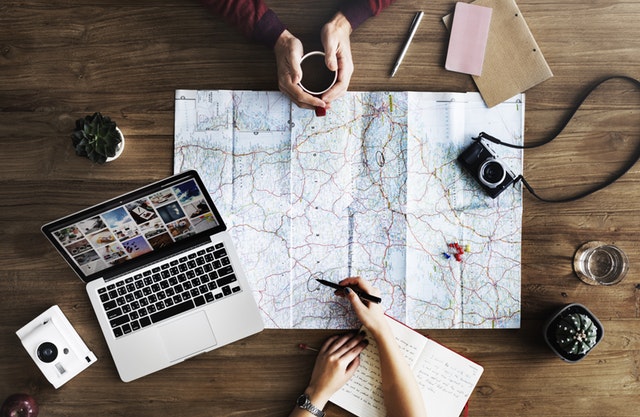“There is nothing worse than finding oneself overseas on that “”dream vacation‘ and suddenly realize that, because of ill planning, that dream is now a nightmare. The traveler must plan carefully. It will not do to run off to Africa on safari at a moment’s notice, trusting in a lucky rabbit’s foot key chain for protection. Sure, he knows enough to grab his passport and mosquito repellent, but the average American traveler is very naive, and cannot imagine the inconveniences the rest of the world puts up with. The following hints, however, will tip the scales in the traveler’s favor, if duly applied
1. When the travel brochure says the country requires a visa, they are not speaking in terms of credit. A visa is required to enter a country, and specifies on what terms the visitor is there (tourist, business, work), and how many days the visitor may stay. Sometimes the visa can be obtained at the customs desk of the destination country, but often the visa must be requested and obtained from the country’s embassy before the visitor leaves home. This process takes time, and some embassies are notoriously slow in approving visas, or even reluctant to do so at all.
2. If the visitor plans on renting a car in the destination country, he must find out what he will need in order to do so. Will his passport or current license do the trick, or must he apply for an international driver’s license? How much will insurance cost?
3. Photocopies! The traveler should make photocopies of his driver’s license, passport, credit cards social security card, and any other important documents she is carrying. One extra set should go with the traveler in a separate place in his luggage from the originals, and a second set should stay with a trusted relative or friend. If, for some reason, he loses his paperwork, he can call home to get the necessary numbers, or the friend can fax them to the officials.
4. Traveler’s insurance is always a good idea. Always. Even if it is never used-which, by the way, would be a good thing, it’s inexpensive and worth
it.
5. Prescription medication should be packed, along with the actual written prescription from the doctor. An extra set of eyeglasses or contacts is also a good idea. The medication should always be packaged in original correctly-labeled bottles. An obscure, unmarked bottle or bag of drug in the luggage will tie things up considerably in the airport customs department.
6. A credit card company will become suspicious if an account based in, say, low a begins making charges in Madagascar. The traveler should contact his credit card companies to alert them that he will be making charges in specific locations, preventing their alarm and temporary suspension of the account.
7. The traveler must mentally prepare himself for an exhausting trip to and from his destination. Be ready for it, overseas travel is grueling, even if all goes well.
8. Take a record of important contact numbers, including close family, the doctor, the dentist, the lawyer, the bank, credit card companies, and the numbers for U.S. Embassies in the destination locations. Relatives should have an itinerary, and an option of emergency contact numbers.”








